Courtroom Drama
the Politics and Poetics of One Community Immersion Experience
This week on HowlRound, we continue our series on Triple Play, a consortium project between Theatre Development Fund and Theatre Bay Area. Triple Play is exploring the crucial triangular relationship between playwrights, theatres, and audiences with the hope of creating a paradigm shift in the way the field thinks about audiences and the way audiences experience new work. Now in phase two, Triple Play is midway through 300 interviews between playwrights and audience members around the country. This series will share best practices in audience engagement and question how we define the relationship between artists, theatre companies, and audiences. In this piece, playwright Karen Hartman writes about her experience as part of the New Play Frontiers program at People’s Light in Malvern, Pennsylvania. New Play Frontiers is an initiative to conceive, develop, and produce new plays that explore American identity through stories of deep meaning to specific populations in the five-county region that surround our theatre.—Alli Houseworth, series curator
Zak Berkman’s invitation to apply for New Play Frontiers came right when I craved more reality. I had just spent a weekend in Destin, Florida, interviewing an 86-year-old man whose life was saved as a fluke when he fled 1939 Poland as the ward of a stranger. That same fall, Superstorm Sandy knocked New York City to its knees. I couldn’t afford to cancel my intensive playwriting workshop, so I walked, and twice drove our 1994 Oldsmobile, through a deserted city, hauling coffee and boiled eggs. The city was silent, damp, and dark. A couple of bodegas sold nonperishables by candlelight and cash. I wanted to feed displaced people and bring them blankets (and I did some of that), but also to exist in that raw state in which everyone lets each other in.
As a writer, if you’re lucky, you lead a rarefied adulthood. Maybe you never have a boss in the conventional sense, or feel the boom and bust of an economic cycle (because there is no boom). You elevate your inner life as if it’s real because it is your one precious source. And you skip a lot of crap, but at some point you’re looking at middle age knowing you might never make a damn bit of concrete difference to this world. Most plays don’t matter to most people who see them, and most plays are not seen by many people, so a writer needs an insane confluence of urgency and success to have any impact at all that might resemble, say, bringing Christmas dinner for a hundred to a rec center in Staten Island.
So the possibility of joining a theatrical project rooted in actual other human beings seemed exactly, desperately right. Even better, it came from Zak (whom I knew a bit) at People’s Light, a company I was curious about.
For the staff of Project Dawn Court, who labors pretty unseen, on zero budget, on behalf of women who are even more unseen and totally impoverished, there was a kind of light in the room…I think I constructed the staff as I see them, which is as heroes.
I understood (mistakenly) that the first round of projects would focus on the Underground Railroad. I landed on the idea of a Safe House, where a person goes to transition from being property to being an independent human. I wanted to look at such a place of refuge and transformation in a contemporary context. Pennsylvania, an early leader in abolitionism and a battleground for the Fugitive Slave Act, is now a hotspot for drug and sex trafficking, partially for the same reason—its central location on the Eastern Corridor (I-95 is as critical now as the Delaware River 200 years ago). I was interested in human trafficking because of the parallel to slavery and because the question of legalizing prostitution divides the left, and those are my favorite moral issues: real grey area.
In the initial phase of New Play Frontiers, two other playwrights (Eisa Davis and Kathryn Petersen) and I met with about a dozen community groups in the course of a week, organized by the project coordinator Vern Thiessen. We spent a couple of hours with two “graduates” of Dawn’s Place, a shelter alternative for women who are victims of commercial sex exploitation (CSE is a term that bridges a gap between the legal definition of trafficking and the functional lack of choice facing most street prostitutes). It was a wrenching, riveting morning of listening.
I interviewed the founders of Dawn’s Place, four nuns and a lawyer, Mary DeFusco. Mary suggested I sit in on the court she had also founded, for women with prostitution convictions but no other crimes. Two weeks later I slipped into that court, introduced very briefly by Mary, and took notes but didn’t record.
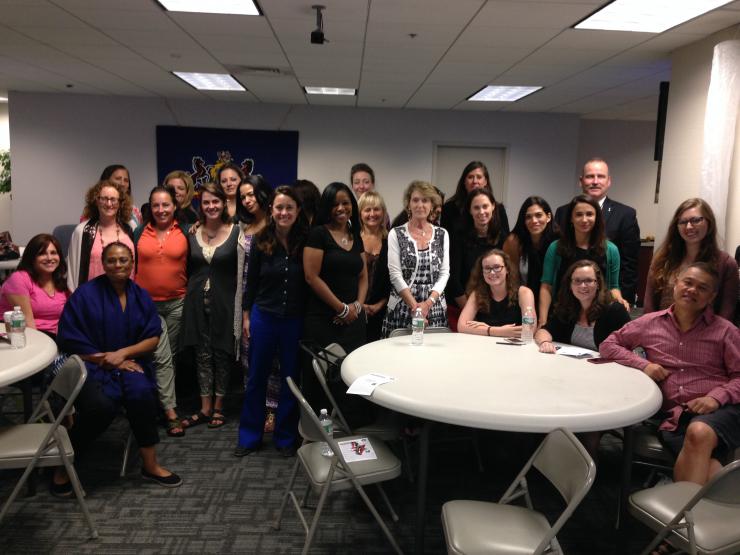
In Project Dawn Court I found ritual, action, stakes, and humanity. That was the play. I kept coming back, a fly on the wall for these monthly sessions, which are long, and both formulaic and intense. Each of the fifty or so women stands up to give her report. Some are brief and some highly emotional. Some celebrate milestones of success or recovery; some get sentenced to jail from the courtroom.
I interviewed the staff. I interviewed those participants whom the staff considered stable enough to talk to me. Each would start with some version of, “My life could be a movie, I swear.”
I got to be friends with some of the staff members. I love these women. I wish I were more like them. They are warriors with wicked humor. On the other hand, their court is controversial because the women must plead guilty in order to participate, so there is a question of people giving up civil liberties without understanding the possible consequences. So I worship these staff members but don’t always agree with them.
The research process took a year, and the writing was another year.
In the summer of 2015, People’s Light did a workshop of Project Dawn in Malvern, a Philadelphia suburb. I wanted to do a reading of at least part of the play in downtown Philly during the workday, for the court participants and the staff. None of the court participants came to that mini-reading in, only the staff, and they went nuts. They saw themselves. The next night they all came to Malvern for the full reading and they brought their families. The court judge, who happens to be President Judge of the Philadelphia Municipal Court and had granted me all of ten minutes of interview time during the year, brought her husband. Out of 180 or so people at that reading, approximately thirty were directly connected to the court, and there were another ten or fifteen in the audience who work on human trafficking issues in Malvern.
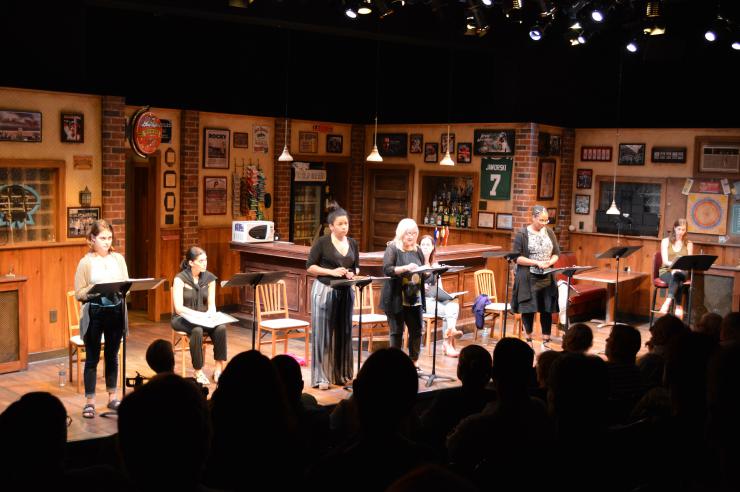
For the staff of Project Dawn Court, who labors pretty unseen, on zero budget, on behalf of women who are even more unseen and totally impoverished, there was a kind of light in the room. They already knew the sad parts of the story: the grim outcomes, the suffering. I dosed the script with as much humor as possible, and I think I constructed the staff as I see them, which is as heroes.
The conversation afterwards was so different from the usual post-play discussion, not only among the staff who were present but the rest of the People’s Light audience. too. They wanted to speak about the issues raised by the piece, not so much about what “worked” or didn’t. I liked the moral outrage and the shared understanding that this is happening, not necessarily on “our” doorstep (remember it’s a suburban theatre) but in our county, under our state and local leadership.
I wrote to the Project Dawn Court staff to ask for any corrections, and most said I got it right, or offered small procedural fixes, but there were a couple of larger questions. For example, the fictional public defender in Project Dawn has substantial home drama, made worse by an unsupportive husband. I got an e-mail saying, “We can do this work because our husbands are amazing. Why the stereotype of the overwhelmed working mom?” It was a great point. So while I left that character alone (because the lack of support is crucial to her storyline), I gave another character a great husband and kids.
Then there was an issue I couldn’t fix. The Parole Officer in the real court is an insightful public safety vet trusted by both the court participants and the staff; she is tough but hilarious. However, in the first draft everything the Parole Officer had to say was procedural; the character went flat. So Project Dawn the play has no PO, which is a disservice to Linda Muraresku, because she’s the heart of the operation.
In theatre you’re always streamlining and simplifying to tell the story effectively. And to portray this court, with all its procedures, rules, and voices, I streamline quite a lot. But because the participants might come see the play, I try harder not to simplify in the direction of stereotype.
Our brains work so effectively to slot information into pre-fabricated categories. Art should push back on that, make new categories, but unfortunately those stereotypes are lodged inside artists, too. Observing the shapes and patterns of actual other lives has expanded my emotional circuitry, and I hope enabled my work to be a little more useful.

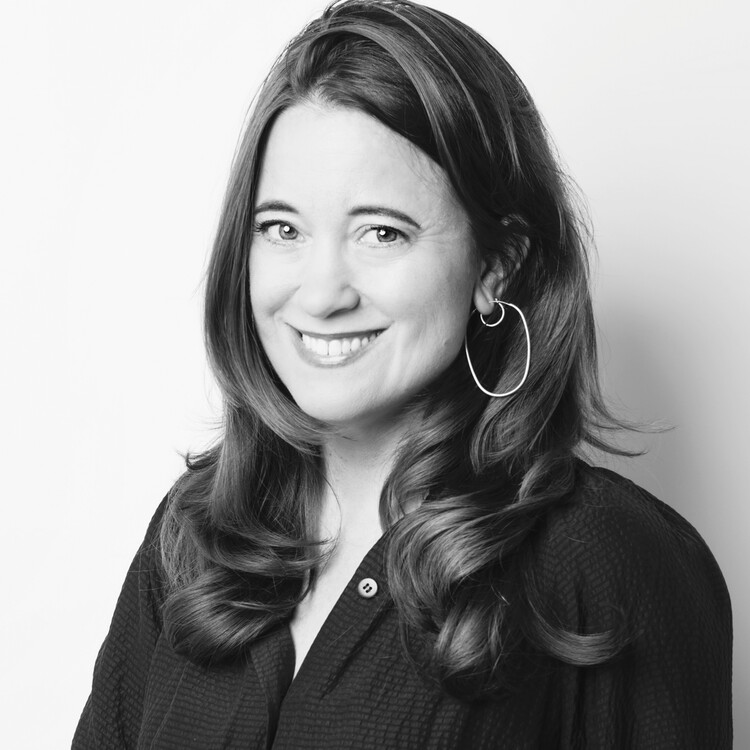




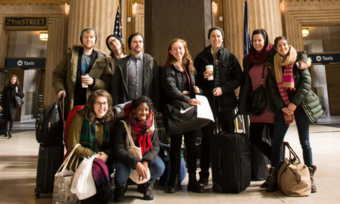


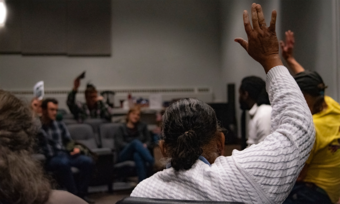

Comments
The article is just the start of the conversation—we want to know what you think about this subject, too! HowlRound is a space for knowledge-sharing, and we welcome spirited, thoughtful, and on-topic dialogue. Find our full comments policy here
Very interesting info and insights. In keeping with the theme (of doing real good in the world) I'd just like to emphasize (for those who don't know) that it was the passage of the Fugitive Slave Law that ultimately caused Americans (when serving on juries) to seize their birthright and find defendants Not Guilty even when it was clear that they were guilty (of not returning runaway slaves to their "rightful owners" in the south).
In our modern world the establishment does its best to make sure that jurors aren't aware of this right (to judge the law (or how it is being applied in the particular case) as well as the facts. There is probably few more important things that we as artists can do (either in our stories or in our "real" lives) to make sure that people are aware of this right when they are the last hope of someone's life being destroyed by a draconian drug (or, as referred to in the piece, prostitution) law.
Neal, are you talking about "jury nullification," which I believe was first established by William Penn, and is also currently on the books in the Commonwealth of Pennsylvania, that a jury has the right to follow their own consciences, and disregard a judge's instructions, if they feel it is warranted. This is something explored in my play Molly's Hammer about Molly Rush and the Plowshares Eight (which included, the late Daniel Berrigan) who in 1980 took a hammer to the nosecone of a nuclear warhead in King of Prussia Pennsylvania, in order to protest the buildup of our nuclear arsenal. At the trial the defendants tried to present the justification defense (that they were justified in their actions to prevent a greater harm) based on International principles established at Nuremberg (also on the books in PA) as well as communicate to the jury their right to follow their own conscience, but the judge would not allow it. They were convicted and they appealed, finally convicted ten years later, after being allowed to present their defense. All of this legal history came from the book Hammer of Justice, (which my play was adapted from). Trying to communicate this aspect of the trial nearly killed me (through multiple revisions to the Trial scenes) but I felt it was essential to understanding what was really at stake. And of course, no one really wants juries to know about this, but it is the law of the land in Pennsylvania.
Yes! Wow, Tammy, I've very impressed! Well done! I hope your play gets produced around here someday so I can see it.
And I know what you mean about how difficult it is to get those trial scenes right! I didn't mention this before, but some years ago I wrote a screenplay ("Arranged") that culminates [SPOILER ALERT!] with the main character trying (over the objections of the prosecutor) to explain jury nullification at her trial because she is clearly guilty of the "crime" of refusing to marry the man she was assigned to (the story takes place in an unpleasant near future). (The semi-sympathetic judge eventually lets her slip in a little about the fugitive slave law and such because he knows what an incredibly evil murderer the person she is supposed to marry is. So, yes, I basically cheated I guess so the story could have a happy ending.)
It was a semi-finalist in the Chicago Film Office contest, but that wasn't enough to get me anywhere. (And I didn't/don't have the money for national contests or pitchfests or whatever.) In retrospect I guess I was pretty delusional thinking that something so intellectual and dialog-oriented could work as a screenplay. But except for the ending I saw it as a movie (lots of locations and people involved), so I couldn't possibly think of any way to do it as a play. I mean, it would be like doing that big expensive movie "The Cain Mutiny" as a play.
Wait a minute!
Hmm... maybe it's time for me to revisit doing it as a play. (After I finsih the play I'm working on now.) Though of course I wish I had some way of getting it made as is!
P.S. Please forgive the lateness of my reply. I'll endeavor to do better about checking for comments to my comments. (I don't like to log into disqus [even though that would allow me to be automatically notified] because I really don't like the idea of people outside the howlround community being notified anytime I post a comment. Feels like I'm being spied on or something.)
Thank you for this Karen, a great insight into the process of working with real people to create theater that leads to real change, if not immediately in the society at large, then no doubt it has made a life changing difference to the participants of Project Dawn Court. Are there plans for future productions to a wider audience?